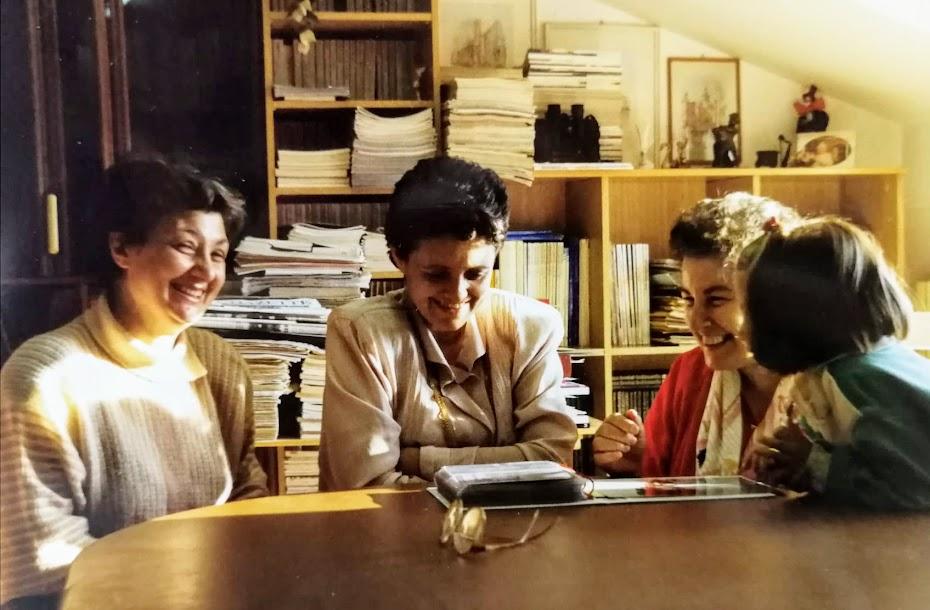We Enjoy Deep Conversations With Strangers Much More Than We Expect To
digest.bps.org.uk
9 ideas
·450 reads
7
Learn more about personaldevelopment with this collection
How to create customer-centric strategies
The importance of empathy in customer success
The impact of customer success on business growth
The Art of Conversation
Sometimes the most meaningful conversations come at surprising times: with someone you meet on a train and never see again, with a friend of a friend who you’ve only just met. Conversely, conversations with our closest friends and family can often be difficult, and we sometimes fail to share our deepest thoughts and feelings with those we love the most.
14
122 reads
With Strangers
A new paper, published in the Journal of Personality and Social Psychology, finds that we seriously benefit from these deep conversations with strangers. But, despite this, we sometimes remain reluctant to engage in them, overestimating their awkwardness and underplaying their advantages even when we enjoy them more.
14
84 reads
Topics of Conversation
In the first study, participants read that they would be randomly paired with another person, who they would discuss several questions with. Topics included things in life they felt grateful about and times they had cried in front of another person. They then estimated how much they would be interested in the other person and how interested the other would be in them, how awkward they would feel during the conversation, and how strong a bond they would feel towards them. After having the conversation, they rated their actual experience of the conversation using these same metrics.
14
46 reads
Connection
The results showed that participants had underestimated how interested they would be in the other person — and how interested that person was in them. They also underestimated how connected they would feel with their partner, and overestimated how awkward the conversation would be.
14
47 reads
Deep Questions
A second study replicated the first — only this time, half of the pairs of participants had shallow conversations about TV, lifestyles, and haircuts while half responded to the meaningful questions. Again, participants overestimated how awkward the conversation would be and underestimated how connected they would feel. Those who answered deep questions overestimated the awkwardness significantly more than those who had shallow conversations — and ultimately felt more connected than pairings in the shallow condition.
14
38 reads
Importance of Responses
A follow-up study, in which participants picked their own deep questions to discuss, replicated these findings.In a fourth study, participants reported how much they thought they would care about their partner and vice versa before speaking to them on either shallow or deep topics. Participants expected to care more about their own responses than their partner would, particularly in the deep condition, though this wasn’t the case: across both conditions, conversational partners cared more about answers to both shallow and deep questions than was anticipated.
14
29 reads
"Miscalibration"
In a later study, participants engaged in both shallow and deep conversations, reporting their expectations and responses as in previous studies. And despite expecting to prefer the shallow conversation to the deep one, participants actually preferred the deep one, again significantly underestimating how much they would enjoy it. Participants were also better at anticipating how conversations with loved ones would go versus strangers, suggesting we “miscalibrate” how much people we don’t know are interested in our lives.
14
27 reads
Seven Studies
Over the course of seven studies, the results demonstrated that people enjoy deep conversations despite not expecting to. Deep conversations made participants feel more connected to their conversational partners, and were significantly less awkward than anticipated.
14
28 reads
Physical Alienation
This could prevent us from having conversations with all kinds of benefits — because we expect deep conversations with strangers to be painful, and because we expect strangers not to care, we may be avoiding them altogether. But in fact, this study suggests that we care deeply about one another. Remembering this fact, particularly after a year and a half where many of us have been physically alienated from one another, could ultimately lead to better, or at least unexpected, conversations.
14
29 reads
IDEAS CURATED BY
Other curated ideas on this topic:
10 ideas
1 idea
The Surprising Benefits of Talking to Strangers
theatlantic.com
3 ideas
The Surprising Power of Social Outreach
blogs.scientificamerican.com
Read & Learn
20x Faster
without
deepstash
with
deepstash
with
deepstash
Personalized microlearning
—
100+ Learning Journeys
—
Access to 200,000+ ideas
—
Access to the mobile app
—
Unlimited idea saving
—
—
Unlimited history
—
—
Unlimited listening to ideas
—
—
Downloading & offline access
—
—
Supercharge your mind with one idea per day
Enter your email and spend 1 minute every day to learn something new.
I agree to receive email updates

